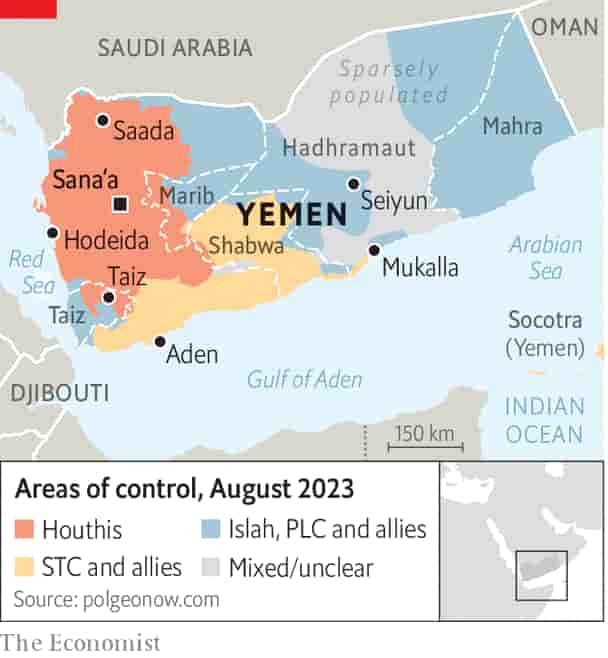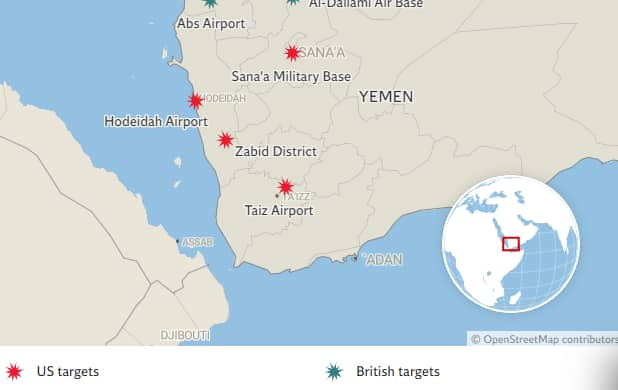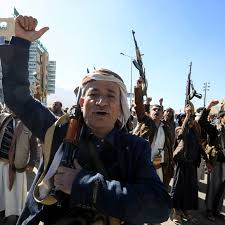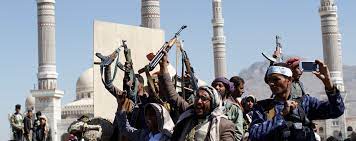Contents
Recently, the world, European and US public opinion frequently has been come across news just as, “The Houthis hit US, UK or Israeli merchant ships in the Red Sea.” To be honest, if we do not follow international relations or trade much, this news does not have much impact on us. Naturally, we quickly forget these kind of missile issues. On the other hand, actually this issue is not something that can be simply brushed aside. So, we are indeed talking about a sensitive issue that, if continued, could cause a regional or even a world war.
Since the subject is so important, we that emphasizes the importance of following the world political and economic agenda in terms of career and development, would like to give you information about the Houthis and their movement.

Background and Emergence: Ansarullah Movement and Yemen
In this context, we will first look at the issue from a historical perspective and then make predictions about the future by touching on today’s developments. While discussing these issues, we will try to provide brief and clear information without getting bogged down in details. After all, we are not international relations experts, right? However, even though we are not experts, it is very important for our personal development and career to follow world trade and global politics.
The Houthis, also known as the Ansarullah movement, has been continuing to attack US, European and Israeli merchant ships passing through the Red Sea with long-range missiles after October 7, citing Israel’s attacks on Gaza. Considering that approximately 15 percent of the world maritime trade passes through the Red Sea, we can better understand the missile movements of the relevant group in that region and the importance of the subsequent air strikes carried out by the USA and England on Yemen. When we look at it from this perspective, we will understand how serious the global consequences of this phenomenon, which at first seems like a local conflict, can be.

Yemen and Inflation Impacts of the Movement!
In the same vein, we should point out that; before the attacks of the Houthis, a cargo from China to England cost approximately 1,500 dollars on average, but after these attacks, it approximately tripled and became 4,500 dollars. If we start from just one burden and consider its impact on world trade and then on country inflation one by one, we will understand the seriousness of the issue.
Who are the Houthis in Yemen? Their Ideology and Objectives

There were governments in Yemen that were believed to be pro-US before the Houthis took over most of the country with the 2014 coup. From this perspective, if we consider that 65 percent of the country is Sunni and approximately 35 percent is Shiite, we understand that it is difficult for this group to establish such dominance in the country on its own. At this point, Iran, known as the biggest defender of Shiism, comes into play. The Houthi movement, which turned into a political movement in 1992 and was founded by Bedrettin Al Houthi in the north of Yemen with the support of Iran, was strengthened with this external support.
This group, based in the city of Sadaa, which did not try any serious uprisings before 2014, also attempted armed uprisings in 2004 after their leader was killed by the forces of the then US-backed President. The group, which existed in fragments in the north of Yemen before the 90s, has now turned into both a political and armed force, especially after this action in 2004. In this context, it is obvious that Iranian support has increased day by day.
In fact, before the they took power, there were conflicts in the country between groups claimed to be pro-US and different groups such as the Houthis, whose roots date back to the Ansarullah movement. There are claims that the civil war in the country is actually a proxy war. According to these claims, the parties to the proxy war are the United States and Iran. Perceiving the increasing western dominance in the region as a threat to itself, Iran gained the upper hand in proxy war by overthrowing the pro-US government in Yemen and ensuring that the Ansarullah movement affiliated with them came to power as of 2014.
Saudi Led Coalition Bombs Them!
Those who have been following the world agenda since then will remember what happened after the Houthi rebellion and the beginning of the civil war in 2014, when the Houthis took over many parts of the country, including the capital Sanaa. The US-backed Saudi Arabian coalition stopped their advance by bombing the capital Sanaa and other parts of Yemen for days. This issue occupied the public agenda for a long time, causing oil prices to rise in the world at that time.

Why Houthis Attacking Ships and Role in Regional Conflicts!
As it is known, the political events called the Arab Spring, which caused the change of governments of many countries in the Middle East, also affected Yemen. In 2014, when the then Yemeni leader Abdullah Saleh’s administration was in trouble due to rising oil prices, the Houthis in the north took action and started the civil war and chain of events that would later lead to the overthrow of the administration. In this context, the group, which receives training, money and military support from Iran, has dominated almost the entire country.
The ideological basis of the group, which is claimed to have approximately 500 thousand supporters and nearly 100 thousand armed militants, is the adoption of Sharia law and anti-US-Israel sentiment. As we mentioned above, the Houthis, who normally held dominance in the north of Yemen before 2014, have since moved to the south and thus started to target merchant ships in the Red Sea region with their long-range missiles.
In other words, it is not in vain that attacks on merchant ships and missiles have been on the agenda, especially in the last month, and that the US-UK coalition has bombed the Houthi headquarters in Yemen. As we have previously discussed in our articles, on October 7, 2023, Hamas’s members crossed the border in the Gaza strip and killed 1200 Israelis in Israeli territory. After these attacks, Israeli attacks started, which still continue. In order to stop these attacks, which caused the death of approximately 25 thousand Palestinians as of January 2024, the Houthis started to attack all merchant ships, especially Israel and the USA.

International Pressure on Israel!
The group, which is well aware of the effects of this action on world trade, is also increasing the international economic pressure on Israel. By the way they consider legitimate in terms of their own ideology. In addition, the high number of civilian casualties in the attacks pushed even Israel’s biggest ally, the United States, to make statements that they wanted the war to end in a short time.
Impacts of Houthis’ Attacks: International Response and Implications
So far, these missile attacks have not had a major global impact.
- On the other hand, as a result of the increase in missile attacks in the Red Sea, many private companies announced that they were postponing the passage of merchant ships through the Red Sea indefinitely. As a result, naturally, if this problem is not solved in the medium term, we will again witness an increase in prices due to the reduction in production supply.
- Furthermore, the suspension of ship trade will also cause difficulties in finding products.
- As we mentioned before, nearly tripling the transportation cost of a product coming from China will negatively affect world trade and naturally inflation in the long term, if not in the short term. This fact also lies behind these attacks by the Houthis.
- Moreover, oil prices started to increase after these attacks. The increase in Brent type oil to around $10 per barrel is perhaps one of the serious reasons for the US-UK-led air strikes. In addition, fear of inflation is also an important factor for the West. While inflation has been reined in after all the interest rate increases, the Houthis’ Red Sea attacks were not good at all.
What do you think, just when the world thinks it is about to get rid of the inflation problem, is it about to fall into the inflation spiral again due to cost increases? The answer to this question will determine the world economic outlook of 2025 also.
